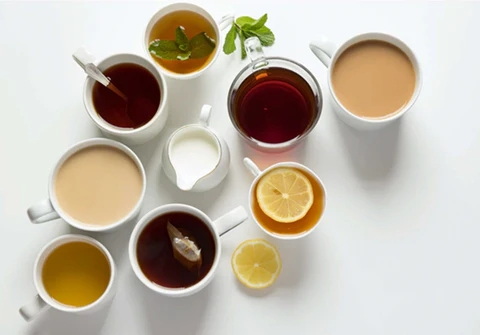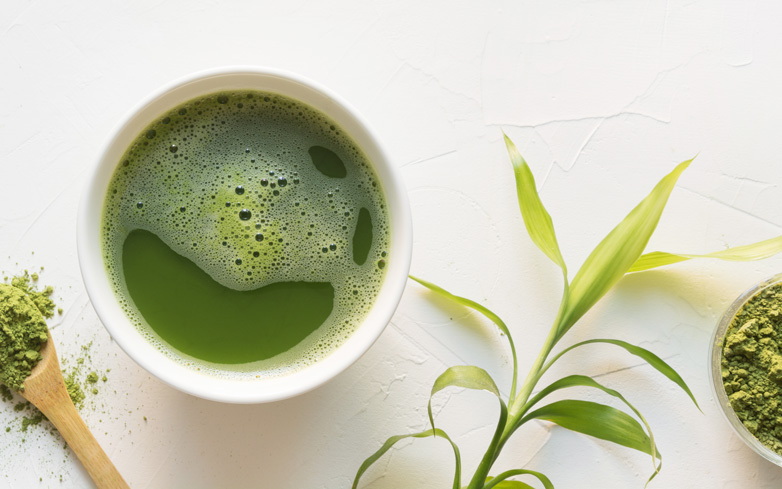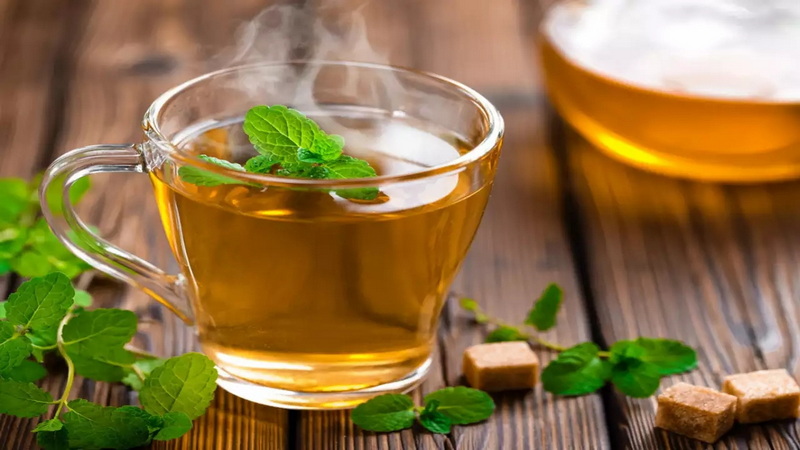Content Menu
● Understanding Green Tea Extract
>> Nutritional Profile of Green Tea Extract
● Caffeine Content in Green Tea Extract
● Caffeine Calculation for 250 Mg of Green Tea Extract
● Factors Influencing Caffeine Levels
● Health Implications of Caffeine from Green Tea Extract
● Potential Benefits of Green Tea Extract
● How to Choose a Quality Green Tea Extract
● Possible Side Effects and Considerations
● Conclusion
● FAQ
>> 1. How much caffeine is typically found in green tea?
>> 2. Is it safe to consume green tea extract daily?
>> 3. Can I get enough benefits from drinking regular green tea instead of extracts?
>> 4. What are the side effects associated with high doses of green tea extract?
>> 5. Can I take other supplements with green tea extract?
● Citations:
Green tea extract has gained immense popularity due to its potential health benefits, including weight loss, improved brain function, and antioxidant properties. One of the most frequently asked questions regarding green tea extract is about its caffeine content, particularly in a 250 mg serving. This article will delve into the caffeine levels found in green tea extract, factors influencing these levels, and the implications for consumers.

Understanding Green Tea Extract
Green Tea Extract (GTE) is a concentrated form of green tea made from the leaves of the Camellia sinensis plant. It is rich in catechins, particularly epigallocatechin gallate (EGCG), which are powerful antioxidants. GTE is available in various forms, including capsules, powders, and liquids.
Nutritional Profile of Green Tea Extract
In addition to caffeine and catechins, green tea extract contains several other beneficial compounds:
- Vitamins: Green tea extract contains vitamins such as vitamin C and some B vitamins that contribute to overall health.
- Minerals: It includes minerals like potassium and magnesium, which are essential for various bodily functions.
- L-Theanine: This amino acid is present in green tea and is known for its calming effects. It can help mitigate some of the jittery effects of caffeine.
Understanding these components can help consumers appreciate the full range of benefits that green tea extract offers beyond just caffeine content.
Caffeine Content in Green Tea Extract
The caffeine content in green tea extract can vary significantly based on several factors:
- Brand Variability: Different brands formulate their extracts with varying amounts of caffeine. For instance, some supplements may contain as little as 15 mg of caffeine per serving, while others can have upwards of 200 mg.
- Extraction Process: The method used to extract the active compounds from green tea leaves can also influence caffeine levels. Standardized extracts may have more consistent caffeine content compared to non-standardized ones.
- Serving Size: The amount of caffeine in a specific dosage of green tea extract can be calculated based on the concentration of caffeine in the product. For example, if a product contains 40% caffeine by weight, then 250 mg of that extract would yield approximately 100 mg of caffeine.
Caffeine Calculation for 250 Mg of Green Tea Extract
To determine how much caffeine is present in a 250 mg serving of green tea extract, we can use the following formula:
Caffeine mg =Total Extract mg ×Caffeine Percentage
For example, if a green tea extract contains 40% caffeine:
Caffeine=250 mg×0.40=100 mg
Conversely, if the extract contains only 10% caffeine:
Caffeine=250 mg×0.10=25 mg
Factors Influencing Caffeine Levels
Several factors can affect the caffeine content in green tea extracts:
- Tea Leaf Variety: Different varieties of *Camellia sinensis* contain varying amounts of caffeine. For instance, shaded varieties like Gyokuro have higher caffeine levels compared to unshaded ones.
- Processing Methods: The way the leaves are processed (steamed vs. pan-fried) can alter their chemical composition and consequently their caffeine content.
- Brewing Conditions: If one were to brew green tea instead of taking an extract, factors such as water temperature and steeping time would significantly impact the amount of caffeine extracted.
Health Implications of Caffeine from Green Tea Extract
Caffeine is known for its stimulant effects, which can enhance alertness and improve cognitive function. However, excessive intake may lead to side effects such as anxiety, insomnia, and increased heart rate. The general recommendation for safe daily caffeine consumption for healthy adults is up to 400 mg.
When considering green tea extract supplementation:
- Moderation is Key: Individuals sensitive to caffeine should monitor their total daily intake from all sources, including coffee and other caffeinated beverages.
- Consult Healthcare Providers: Those with pre-existing health conditions or who are pregnant should consult healthcare professionals before starting any new supplement regimen.

Potential Benefits of Green Tea Extract
Green tea extract is associated with several health benefits beyond its caffeine content:
- Weight Loss: Studies indicate that EGCG can enhance metabolic rate and promote fat oxidation. This makes green tea extract popular among those looking to lose weight or maintain a healthy weight.
- Heart Health: Antioxidants found in green tea may help lower cholesterol levels and improve heart health by reducing blood pressure and improving arterial function.
- Brain Health: The combination of caffeine and L-theanine may improve brain function by enhancing attention, memory, and reaction time.
- Diabetes Management: Some studies suggest that green tea extract may help regulate blood sugar levels and improve insulin sensitivity.
How to Choose a Quality Green Tea Extract
When selecting a green tea extract supplement, consider the following factors:
- Standardization: Look for products that specify the percentage of catechins or EGCG on their labels. This ensures you are getting a consistent dose.
- Caffeine Content: Check the label for information on caffeine content if you are monitoring your intake closely.
- Reputable Brands: Choose products from well-known brands that adhere to quality manufacturing practices and have positive customer reviews.
Possible Side Effects and Considerations
While generally safe when consumed in moderation, excessive intake of green tea extract can lead to side effects such as:
- Gastrointestinal Issues: Some individuals may experience stomach upset or nausea when consuming high doses.
- Liver Toxicity: Rare cases have been reported where excessive consumption led to liver damage. It's crucial to stick to recommended dosages.
- Interactions with Medications: Green tea extracts can interact with certain medications, including blood thinners and some antidepressants. Always consult with a healthcare provider if you are taking other medications.
Conclusion
In conclusion, the amount of caffeine in a 250 mg serving of green tea extract can vary widely depending on the product's formulation and extraction methods. It can range from as little as 25 mg to over 100 mg or more. Understanding these variations is crucial for consumers looking to manage their caffeine intake effectively while reaping the health benefits associated with green tea extracts.
When considering supplementation with green tea extract, it's essential to choose high-quality products while being mindful of overall dietary habits and lifestyle choices that contribute to health and wellness.

FAQ
1. How much caffeine is typically found in green tea?
Most brewed green teas contain approximately 30 to 50 mg of caffeine per cup (8 oz). However, this can vary based on brewing time and leaf variety.
2. Is it safe to consume green tea extract daily?
Yes, moderate consumption (up to 400 mg of caffeine per day) is generally considered safe for most healthy adults. However, individuals with certain health conditions should consult their healthcare provider.
3. Can I get enough benefits from drinking regular green tea instead of extracts?
Yes, drinking regular green tea provides many health benefits due to its antioxidant content and lower caffeine levels compared to extracts.
4. What are the side effects associated with high doses of green tea extract?
High doses may lead to liver damage or toxicity if consumed excessively over time. Symptoms could include nausea and abdominal pain.
5. Can I take other supplements with green tea extract?
It's advisable to consult with a healthcare provider before combining supplements to avoid adverse interactions or excessive stimulant effects.
Citations:
[1] https://www.livestrong.com/article/186702-how-much-caffeine-is-in-green-tea-extract/
[2] https://pubmed.ncbi.nlm.nih.gov/26065095/
[3] https://www.sugimotousa.com/blog/green-tea-vs-coffee-everything-you-need-to-know
[4] https://www.healthline.com/nutrition/10-benefits-of-green-tea-extract
[5] https://www.zhounutrition.com/blogs/the-greatness-files/green-tea-extract-q-a
[6] https://www.reddit.com/r/chemistry/comments/3gt1zo/how_much_caffeine_in_green_tea_extract/
[7] https://newrootsherbal.com/product/id/0781
[8] https://www.elo.health/articles/green-tea-extract-supplements/
[9] http://www.greenskybio.com/blog5/best-answers-to-7-key-questions-about-green-tea-extract.html
[10] https://health.clevelandclinic.org/green-tea-extract-a-better-way-to-boost-energy-or-not
[11] https://www.caffeineinformer.com/caffeine-content/green-tea-extract
[12] https://examine.com/supplements/green-tea-extract/
[13] https://www.medicalnewstoday.com/articles/269538
[14] https://www.medicalnewstoday.com/articles/269538
[15] https://sg.iherb.com/pr/now-foods-green-tea-extract-400-mg-250-veg-capsules/7267
[16] https://pubmed.ncbi.nlm.nih.gov/16506807/
[17] https://www.webmd.com/vitamins/ai/ingredientmono-960/green-tea
[18] https://www.sugimotousa.com/blog/caffeine-in-green-tea
[19] https://www.innerbody.com/best-green-tea-extract
[20] https://cytomatrix.ca/products/green-tea-extract-90-v-caps/
[21] https://www.youtube.com/watch?v=CkdqsIhHEhM
[22] https://pmc.ncbi.nlm.nih.gov/articles/PMC7098939/
[23] https://www.healthline.com/nutrition/10-benefits-of-green-tea-extract
[24] https://www.youtube.com/watch?v=Q8gBjZ5e3Bs
[25] https://pmc.ncbi.nlm.nih.gov/articles/PMC4307170/
[26] https://www.youtube.com/watch?v=RIbff5iD0GQ
[27] https://www.youtube.com/watch?v=my7FIaS1mGQ
[28] https://www.truecitrus.com/blogs/tc/clean-caffeine-in-green-tea-vs-coffee
[29] https://support.optimumnutrition.com/en/support/solutions/articles/80001094135-how-much-caffeine-is-in-your-green-tea-and-green-coffee-extracts-
[30] https://www.tandfonline.com/doi/full/10.1080/15502783.2024.2323919
[31] https://www.webmd.com/drugs/2/drug-76714/green-tea-leaf-extract-oral/details






























